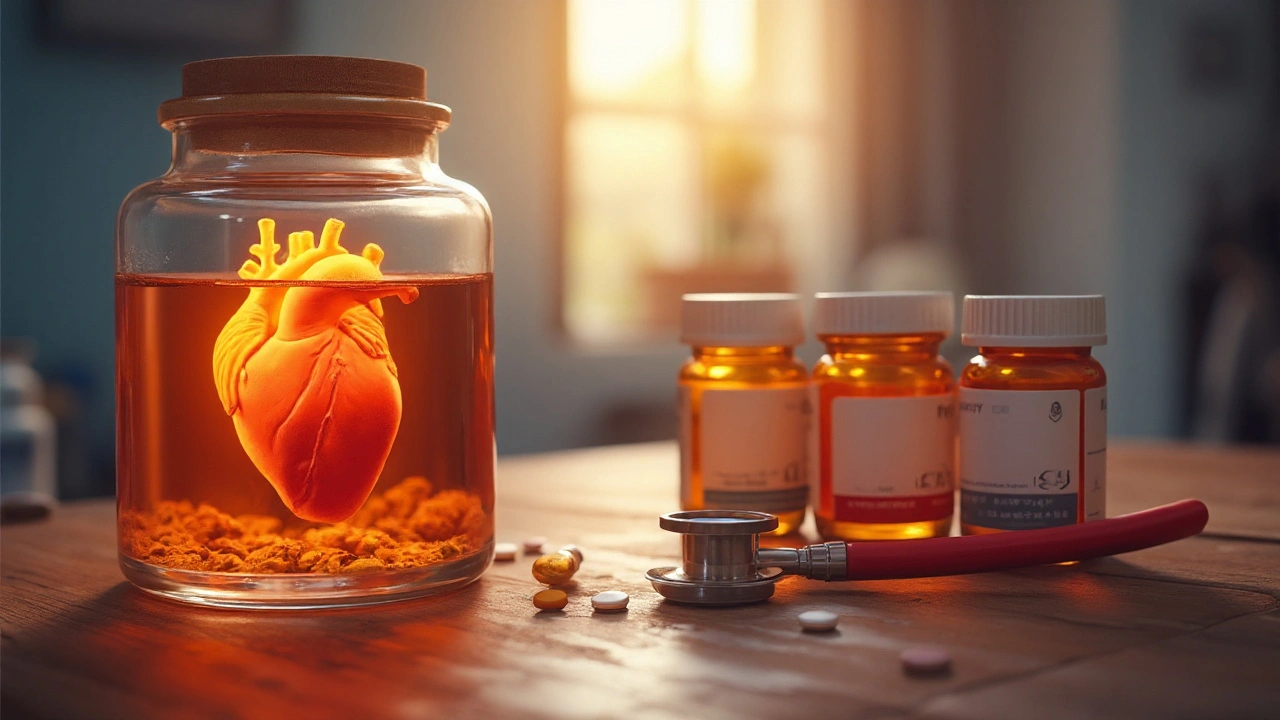Heart Failure Drugs: What You Need to Know
If you or someone you care about has heart failure, medication is a big part of staying stable. The right drug can lower symptoms, improve quality of life, and even extend lifespan. Below we break down the most common medicines, what they do, and how to use them safely.
Common Drug Classes
ACE inhibitors (like lisinopril or enalapril) relax blood vessels and lower blood pressure. They’re usually the first choice because they reduce the heart’s workload. Most people feel a mild cough or a slight rise in potassium – tell your doctor if it bothers you.
ARBs (such as losartan) work like ACE inhibitors but usually cause fewer coughs. They’re a good backup if ACE inhibitors don’t sit well. Watch for dizziness when you stand up quickly.
Beta‑blockers (metoprolol, carvedilol) slow the heart rate and lower the force of each beat. Starting doses are low and increase slowly, so you may feel tired at first. Keep an eye on your pulse and report any extreme slow‑heart rates.
Diuretics (furosemide, spironolactone) help the body get rid of excess fluid. They’re key for reducing swelling and shortness of breath. You’ll need to check your weight daily and watch for frequent urination or low potassium.
Aldosterone antagonists (spironolactone, eplerenone) block a hormone that makes you hold onto salt. They’re often added when other drugs aren’t enough. Blood tests are required to keep potassium and kidney function in check.
ARNI (sacubitril/valsartan) combines two actions: it widens vessels and blocks a harmful peptide. It’s shown to improve survival more than older ACE inhibitors. Start low and avoid using it with ACE inhibitors for 36 hours to prevent swelling.
SGLT2 inhibitors (dapagliflozin, empagliflozin) were first diabetes drugs but now help heart failure patients, even without diabetes. They lower blood sugar a bit and may cause more urination. Stay hydrated and let your doctor know if you feel light‑headed.
Hydralazine/nitrates (hydralazine + isosorbide dinitrate) are used especially in people who can’t tolerate ACE inhibitors or ARBs. They widen vessels in a different way. Watch for headaches or a rapid heartbeat.
Tips for Safe Use
Take every pill exactly as prescribed. Missing doses can make symptoms flare up quickly. Use a pill box or phone reminder if you forget often.
Track your weight each morning. A gain of two pounds in a day or five pounds in a week can signal fluid buildup and may need a diuretic tweak.
Get blood tests regularly. Doctors need to see kidney numbers, potassium, and sometimes liver enzymes to adjust doses safely.
Report side effects right away. A persistent cough, swelling in your legs, sudden dizziness, or a rapid heartbeat should prompt a call to your healthcare team.
Don’t stop a drug on your own. Even if you feel better, stopping abruptly can make heart failure return worse. Talk to your doctor before any changes.
Stay active within your limits. Light walking, stretching, or a gentle bike ride can improve how your heart responds to medication. Combine movement with the drug plan for best results.
Keep a list of all medicines, including over‑the‑counter pills and supplements. Some items, like NSAIDs or certain herbal extracts, can fight with heart failure drugs and raise risk.
Finally, keep regular appointments. Heart failure is a moving target, and your treatment may need tweaks as you age or develop new health issues. Open communication with your doctor keeps the plan on track.
Digoxin vs Alternatives: How to Choose the Right Heart Medication
A clear, side‑by‑side comparison of Digoxin and its main alternatives for heart failure and atrial fibrillation, covering mechanisms, dosing, safety and practical tips.
